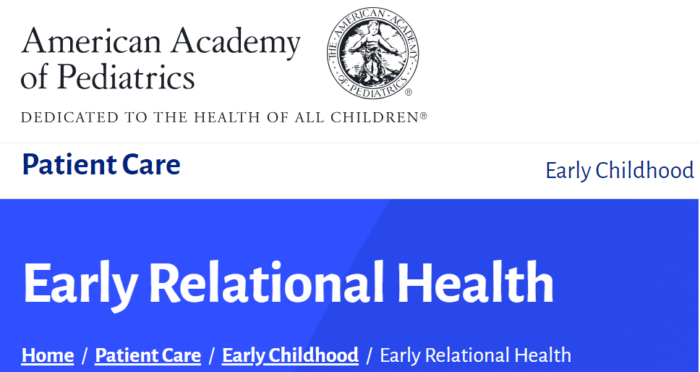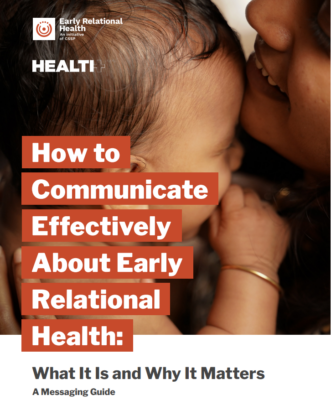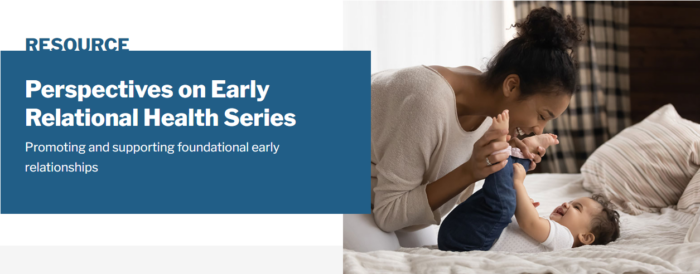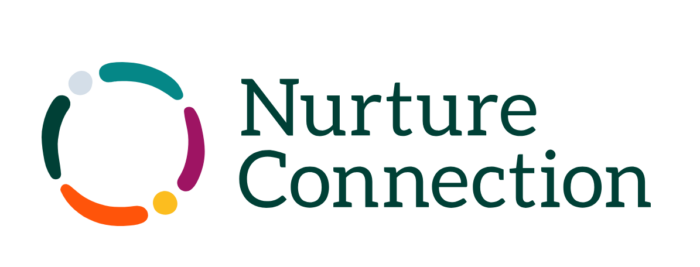Policy Change to Promote Early Relational Health
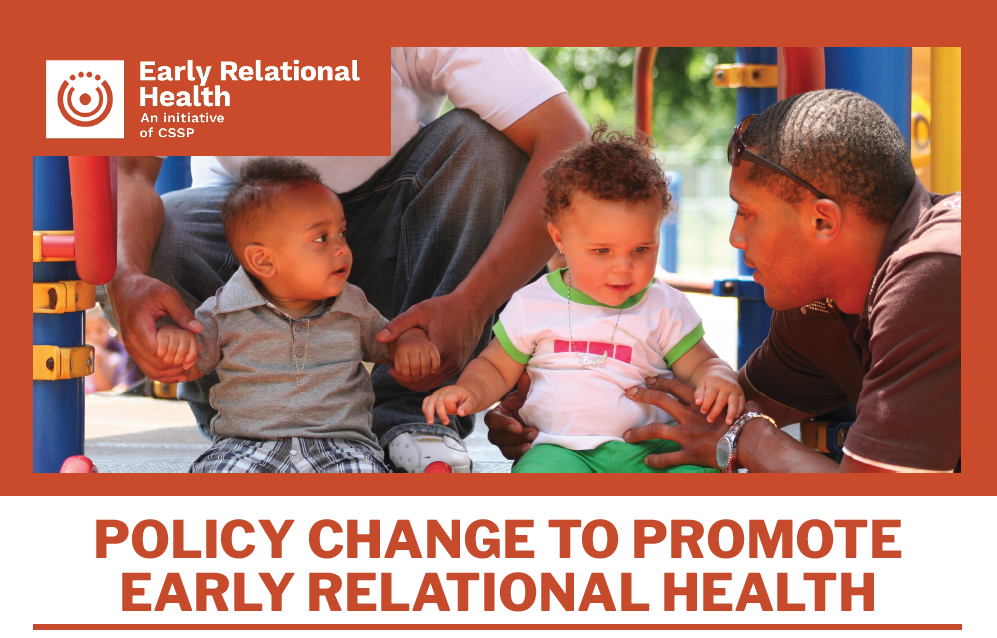
The early and foundational relationships that babies and toddlers experience with their parents shape the health and well-being of two generations. This brief highlights opportunities to promote early relational health (ERH) through policy change and investments, including via existing programs, pandemic funding, and pending legislation in Congress. At its core, ERH focuses on a paradigm shift in early childhood community systems to improve child and family health, development, and well-being through a focus on early relationships.
Policies should respect and bolster family strengths and support adults’ efforts to create safe, stable, and nurturing relationships and environments for young children in the context of their cultural traditions and communities. Policies and programs should be designed to reduce stressors and remove structural barriers (e.g., limited time, income, racism, safety) that affect parents’ capacities to develop strong foundational relationships with their infants and toddlers. Many different types of policies can support and promote the foundational relationships that shape the health, development, social, and mental well-being of both the parent and the baby, perhaps for a lifetime.
The ERH policy goals outlined in the brief reflect the breadth of the policy agenda, including advancing equity; supporting family economic security; training providers; scaling up and sustaining services that promote ERH; developing a diverse and well-trained relational workforce; advancing high-performing medical homes; increasing access to parent-infant and early childhood mental health; and strengthening early childhood systems.
Many different types of policies can support and promote the foundational relationships that shape the health, development, social, and mental well-being of both the parent and the baby, perhaps for a lifetime.
